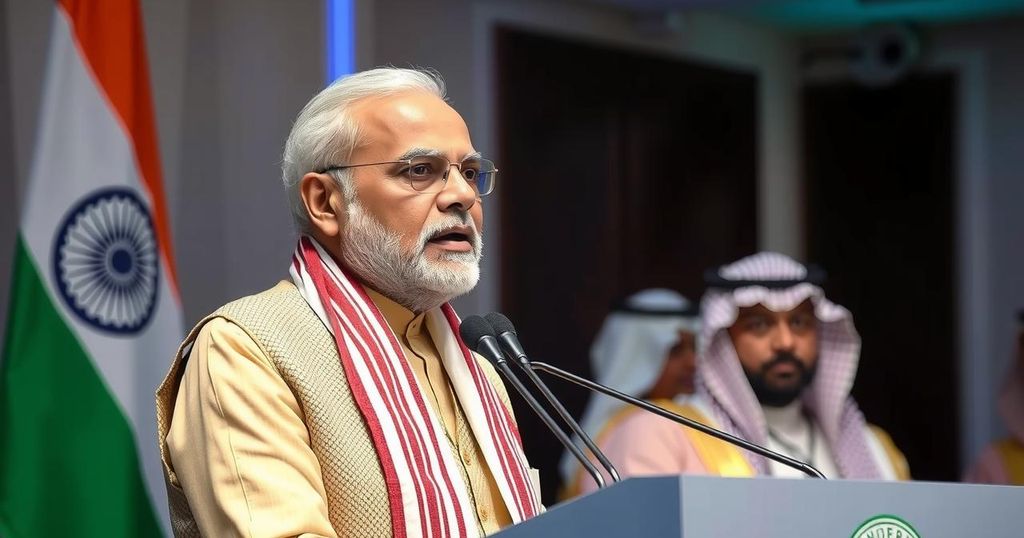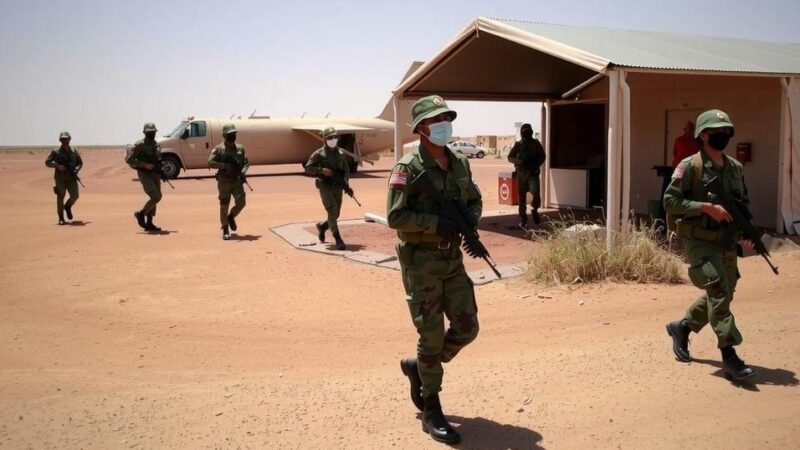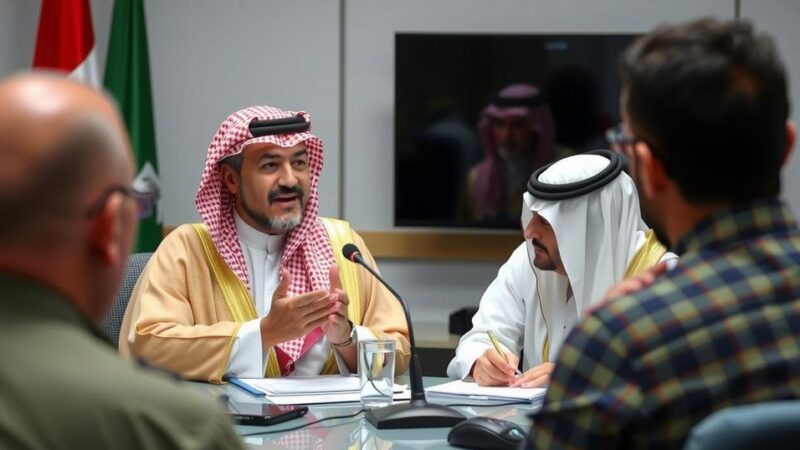Prime Minister Narendra Modi addressed the Indian community in Kuwait, urging them to contribute to transforming India into a developed nation by 2047. He highlighted the longstanding partnership between India and Kuwait and discussed India’s role as a global hub for skilled labor and innovation. Modi also visited a labor camp to engage with Indian workers, emphasizing the government’s commitment to their welfare.
Prime Minister Narendra Modi addressed the Indian diaspora in Kuwait during the “Hala Modi” event, urging their active participation in transforming India into a developed nation by the year 2047. He emphasized the long-standing ties between India and Kuwait as a foundation for building a robust modern partnership. During his address at Sheikh Saad Al-Abdullah indoor sports complex, he noted that he is the first Indian Prime Minister to visit Kuwait in 43 years, highlighting the contributions of the one-million-strong Indian community in Kuwait, particularly in education and infrastructure.
Modi invited the Indian diaspora to engage in India’s development journey, proclaiming that the nation is evolving into a “Vishwa Bandhu”—a global friend focused on worldwide welfare. He highlighted India’s potential to cater to the global demand for skilled professionals, referencing migration agreements with over twenty countries, including Germany and Italy. Modi pointed out that developed nations are increasingly welcoming skilled Indian labor, facilitated by the eMigrate portal, which connects job seekers with foreign employers.
The Prime Minister showcased India’s advancements in technology, infrastructure, and sustainability, emphasizing that the country is now the fifth-largest economy and a leader in fintech, startups, and digital connectivity. He noted the synergies between India’s vision for a “Viksit Bharat” and Kuwait’s “New Kuwait” initiatives, presenting opportunities for collaboration in innovation, green energy, and other sectors.
During his visit, Modi also toured a labor camp housing around 1,500 Indian workers, underlining his commitment to their welfare by meeting with them and sharing a meal. This visit, occurring six months after a tragic fire that claimed the lives of 46 Indian workers, demonstrates the government’s dedication to protecting its citizens abroad. Modi’s discussions with Abdullah Al-Baroun and Abdul Lateef Al-Nesef, who translated key Indian texts into Arabic, showcased the global appeal of Indian culture. He also praised Mangal Sain Handa, a centenarian former Indian Foreign Service officer, noting his lasting impact on Indian diplomacy.
The relationship between India and Kuwait has a historical significance characterized by deep-rooted ties stemming from decades of cultural and economic exchanges. The Indian diaspora in Kuwait plays a vital role in the workforce, contributing to various sectors such as education, engineering, and infrastructure. Kuwait values the skills and hard work of the Indian community, making it an essential partner for India in the Middle East. The strategic frameworks established by both countries aim to enhance collaboration in areas like trade, investment, and skilled labor mobility, reflecting shared developmental aspirations.
In summary, Prime Minister Narendra Modi’s visit to Kuwait marked a pivotal engagement with the Indian diaspora, underlining the importance of their contributions to India’s development. The Prime Minister’s call for unity in building a prosperous future by 2047 resonates deeply within the historic context of India-Kuwait relations. As India positions itself as a global leader, the partnership with Kuwait will facilitate mutual growth and innovation in various sectors, fostering the well-being of both nations and their peoples.
Original Source: www.hindustantimes.com







